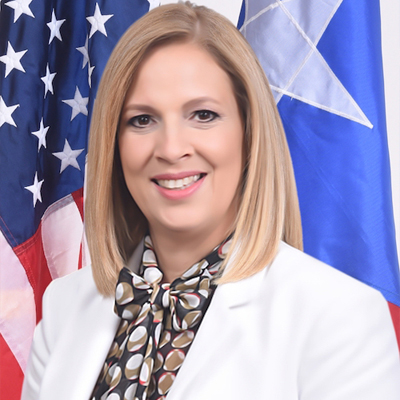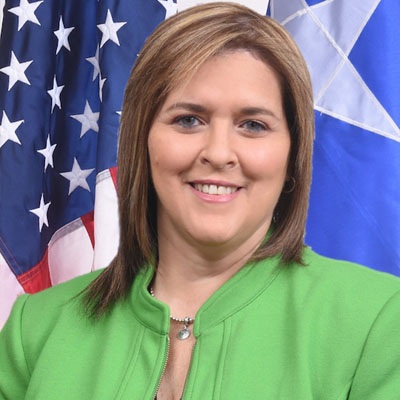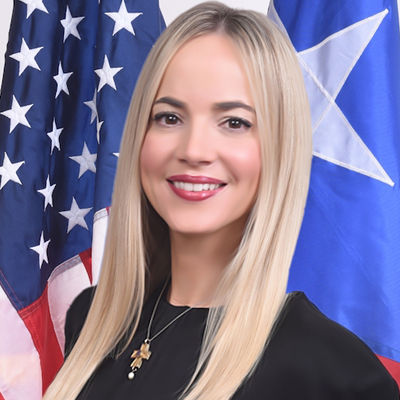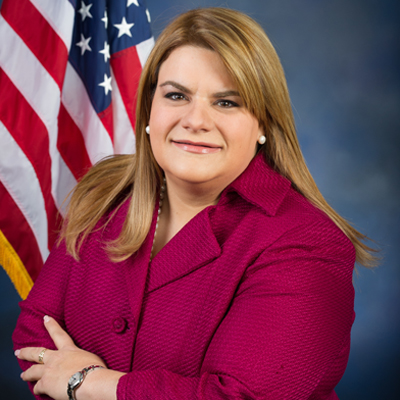Nitza Moran Trinidad

Wanda M Soto Tolentino

Maria De L. Santiago Negron

Joanne M Rodriguez Veve

Jenniffer Gonzalez-Colon

We aim to track Latina elected officials at all levels of government. If you are a current elected official who identifies as Latina and are not currently listed on our map, please submit your information below. Your submission will be reviewed prior to being added to the map.
Source: National Hispanic Leadership Agenda
The word Hispanic is closely tied to the U.S. government and its efforts to identify groups of people, which defines it as “Americans of Spanish origin or descent.” Under this definition, Hispanic only refers to people who are originally from Spanish-speaking countries. This term includes people from Spain but excludes people from Brazil. Although this term is widely used to describe a pan-ethnic Spanish-speaking group of people, it is not universally embraced by the communities who have been labeled as such. Due to its connection to Spanish colonization, some view the term Hispanic as a Eurocentric label that erases the Indigenous and Afro-Latino heritage of people from Latin America.
The terms Latino, Latina, Latin@, Latine, and Latinx refer to a person or group of people of Latin American or Caribbean origin or descent; this includes people from all countries in Latin America and the Caribbean but excludes Spain. When used in the singular form, Latino refers specifically to a man or boy, which is why it is necessary to use the term Latina when referring to women or girls of Latin American origin. The term “Latino” applies to a broader group of people in Spanish because the language is gendered and the masculine forms of words may also be considered gender-neutral, which means that the language itself sets a baseline that is both heterosexual and masculine and by default exclusionary. The term “Latinx” arose out of a desire to have a gender-neutral term and is used to refer to people of Latin American or Caribbean origins and is inclusive of those who identify along a gender spectrum and diverse sexual orientations and gender identities. Latinx term began appearing on the Internet in queer communities in the United States; however, it is not always considered the perfect response to the search for a postcolonial word because it requires an understanding of the English language and tends to highlight people of mestizo identity while erasing Indigenous and Afro-Latino identities. Some also have used the term “Latin@” to be inclusive, using the @ symbol to represent both an O and an A. More recently, “Latine” has emerged as an alternative to Latinx as a gender-neutral term rooted in the Spanish language. It is starting to be used in some parts of Latin America and the Caribbean and is also starting to gain some recognition in the United States.
ngshgjhrjhtrhthhewthejhfjthejhjhtjhewthewthw